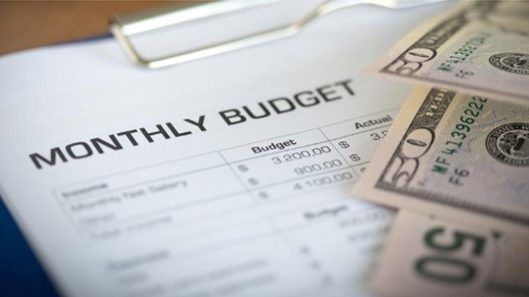The ultimate goal for every individual is achieving financial freedom, the stage where you are no longer dependent on having a monthly income to pay one’s monthly expenses or depend on others.
Financial freedom also means having no debt or outstanding dues and is an achievable goal no matter which stage of life you are in. To achieve it, the first step starts with understanding your financial needs.
To understand your financial needs, budgeting is a great way to start. Once you start to track your monthly expenses and understand how much budget you need, you are free to plan how to invest the remaining amount to be saved for your future financial goals.
But tracking your monthly budget may not be as simple and will require a breakdown of your income and expenses. If you are in the initial stage of your budgeting, here is a beginner’s guide to budgeting to help you achieve your long-term financial goals:
Track Your Monthly Spends
To start budgeting, you need first to understand where you are spending your income. If you have a salary or a fixed income, you can easily track how much money you get and where it is spent.
While manual entry will help you understand the budgets and better understand your expenses, an automatic tracker could be helpful.

If you are self-employed or have varying incomes, the ideal situation would be to take an average income for each month and then start tracking your spending.
Spends include essentials like food, groceries, housing rent, medicines, and other items you cannot do without. Record the exact spending and incomes each month to track exactly how much savings you can expect on a month-on-month basis.
Understand Your Dues
In addition to tracking your spending, you should also be aware of your dues or financial liabilities. These include loans, credit card payments, or any other outstanding amount you have to repay every month.
Dues should be factored in addition to your expenses since they have a direct impact on your lifestyle.
Many financial institutions today allow the transfer of financial dues and products, and if the result means you have a lower interest rate, it is an option to explore. Read some synchrony bank reviews to transfer existing loans or explore low-cost options for your financial needs.
The idea of tracking your dues is also to understand how many installments or instances you have to pay.
For example, if your student loan is X amount and you are planning to explore a car loan, you need to be mindful that you will manage both payments without eating into your essentials.
Late payments or unpaid dues will add up, and you will have to work a lot harder to pay them all off eventually.
While financial liabilities like a student loan, housing loan, mortgage, or other will incur interest and rack up charges if you miss a payment cycle, you can explore options to transfer it to a different financial institution.
Analyze Your Expenses And Find Opportunities To Trim
The first two steps are crucial as they will give you an understanding of your financial standing. To achieve your long-term financial goals, your short-term situation should be as:
Savings = Income – (Expenses + financial dues)
If the above figure is negative, it is an indication that you are not budgeting right. If you find yourself in this scenario, the best way ahead is to:
1. Cut Down On Unnecessary Expenses
Outstanding payments for your credit card will cost you huge, as the fine gets added on top of the interest. The more instances this continues, the more fines and interest you end up paying.
Find avenues of savings like getting rid of that Netflix membership for the time being or any other expenses which are not crucial.
2. Find Ways To Increase Your Income
While your budget and start cutting down on unnecessary expenses, you also need to find options to create additional income sources and create a positive financial standing. You can explore part-time jobs, freelancing, or other options to help increase your income.
Another option would be to check if any of your expenses can be broken down into monthly installments.
For example, if you need a particular piece of equipment to start a business but cannot pay the entire amount upfront, explore hvac financing deals with the merchant to get easy monthly payment options.
Budget For Your Financial Goals
Once you know exactly how much monthly income you earn and how much you spend, you can create a budget. A comprehensive budget helps create enough savings to start creating money for your future while you embrace frugal living to keep your expenses in check.
The ideal approach suggested by advisers is the 50/30/20 model. In this budgeting model:
- 50% is reserved for your expenses and dues, things which you cannot do without
- 30% is reserved for your wants or for any additional one-time expenses that you cannot avoid
- 20% for your savings
This model is ideal since you can still live the life you want and create avenues for saving each month. However, this model is helpful only if your 50% (expenses and dues) are factored in properly.

Make sure you pay the entire monthly amount for any outstanding dues for that month and then apply the 50/30/20 formula, which may change your situation.
Start Planning Your Investment By Reviewing Your Risk Appetite
Finally, if you are on track with your budgeting and follow this methodology, you will slowly repay your outstanding dues and get closer to being financially independent.
Once you are debt-free, you can start budgeting for your long-term financial goals. These could be moving into a bigger home, buying a car, or other expenses you have been saving for.
In Closing
The right balance of planning and budgeting can help you achieve your financial dreams and do it all without going broke!
Seek financial freedom over all else, and being diligent on your dues and payments will help create a positive credit score. This makes you eligible for low-interest loans and other financial instruments.


